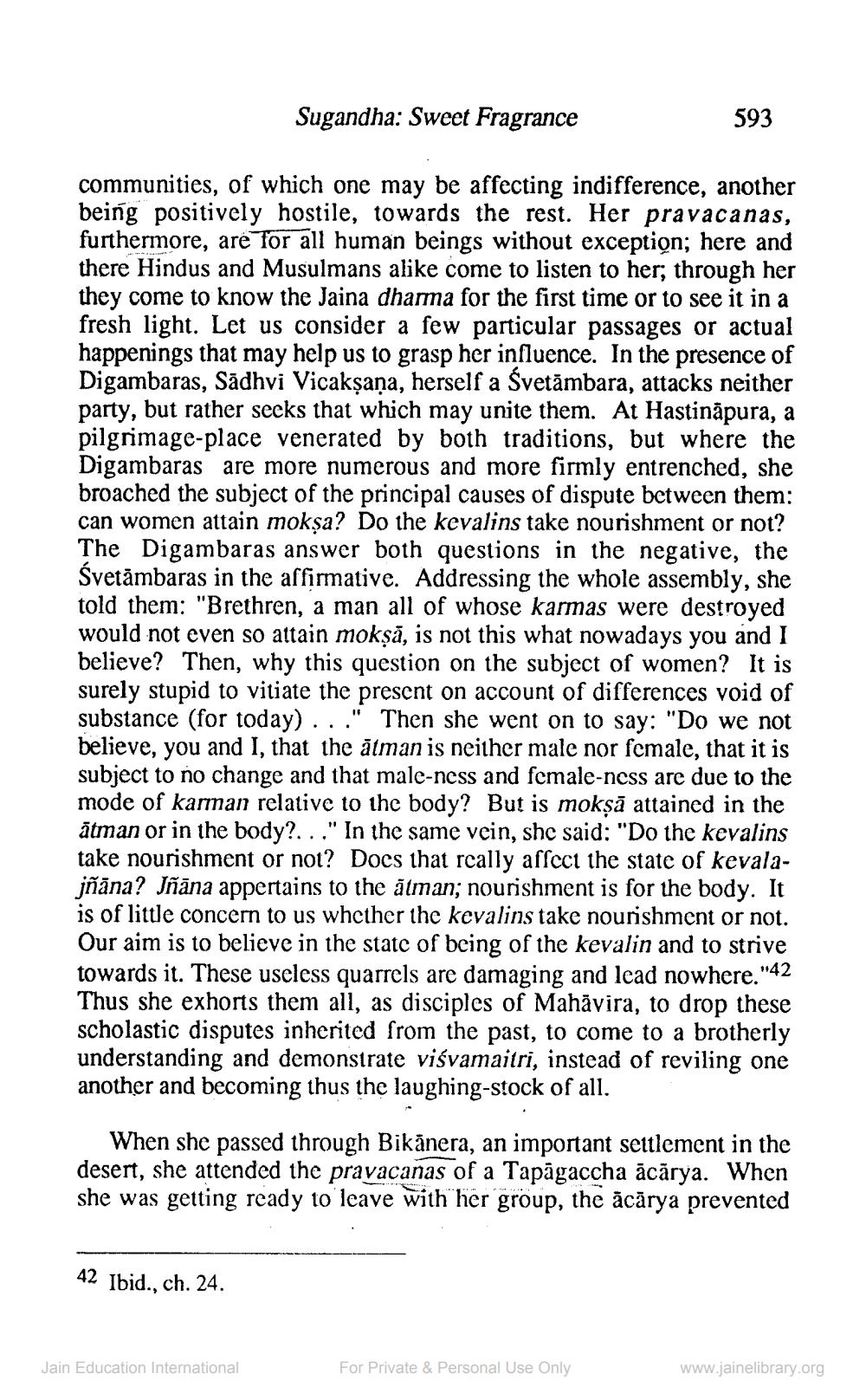________________
Sugandha: Sweet Fragrance
593
communities, of which one may be affecting indifference, another being positively hostile, towards the rest. Her pravacanas, furthermore, are for all human beings without exception; here and
ere Hindus and Musulmans alike come to listen to her, through her they come to know the Jaina dharma for the first time or to see it in a fresh light. Let us consider a few particular passages or actual happenings that may help us to grasp her influence. In the presence of Digambaras, Sādhvi Vicakşaņa, herself a Svetāmbara, attacks neither party, but rather seeks that which may unite them. At Hastināpura, a pilgrimage-place venerated by both traditions, but where the Digambaras are more numerous and more firmly entrenched, she broached the subject of the principal causes of dispute between them: can women attain mokșa? Do the kevalins take nourishment or not? The Digambaras answer both questions in the negative, the Svetāmbaras in the affirmative. Addressing the whole assembly, she told them: "Brethren, a man all of whose karmas were destroyed would not even so attain mokṣā, is not this what nowadays you and I believe? Then, why this question on the subject of women? It is surely stupid to vitiate the present on account of differences void of substance (for today)..." Then she went on to say: "Do we not believe, you and I, that the ātman is neither male nor female, that it is subject to no change and that male-ness and female-ness are due to the mode of karman relative to the body? But is mokṣā attained in the ātman or in the body?..." In the same vein, she said: "Do the kevalins take nourishment or not? Does that rcally affect the state of kevalajñāna? Iñāna appertains to the atman; nourishment is for the body. It is of little concern to us whether the kevalins take nourishment or not. Our aim is to believe in the state of being of the kevalin and to strive towards it. These useless quarrels are damaging and lead nowhere."42 Thus she exhorts them all, as disciples of Mahāvira, to drop these scholastic disputes inherited from the past, to come to a brotherly understanding and demonstrate viśvamaitri, instead of reviling one another and becoming thus the laughing-stock of all.
When she passed through Bikānera, an important settlement in the desert, she attended the pravacanas of a Tapāgaccha ācārya. When she was getting ready to leave with her group, the ācārya prevented
42 Ibid., ch. 24.
Jain Education International
For Private & Personal Use Only
www.jainelibrary.org




